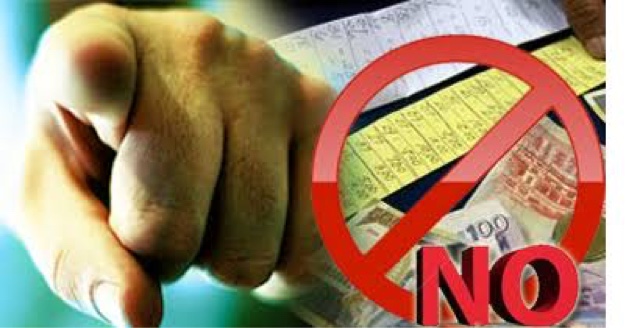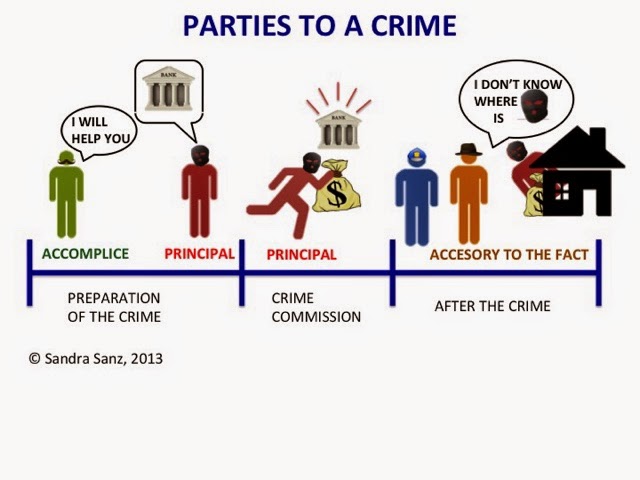The New Probation Law
As defined, probation is a disposition under which a defendant, after conviction and sentence, is released subject to conditions imposed by the court and to the supervision of a probation officer.
The Parole and Probation Administration has defined probation as a privilege granted by the court to a person convicted of a criminal offense to remain in the community instead of actually going to prison/jail.
The Parole and Probation Administration has defined probation as a privilege granted by the court to a person convicted of a criminal offense to remain in the community instead of actually going to prison/jail.
As defined, a probation is just a privilege and not as a matter of right. It shall only be granted after conviction and sentence. There is no probation when the accused/defendant has not been convicted yet.
Google defines conviction as a formal declaration that someone is guilty of a criminal offense, made by the verdict of a jury or the decision of a judge in a court of law. In the Philippines, it is only a judge of a court of law promulgates the decision.
What are the advantages of probation?
The Parole and Probation Administration enumerates the following advantages:
1. The government spends much less when an offender is released on probation than that offender be placed behind bars (jails/prisons).
2. The offender and the offender's family are spared the embarrassment and dishonor of imprisonment.
3. The offender is able to continue working and can, therefore, earn income, pay taxes and pay damages to the victim of the crime.
Probation Laws:
Mainly, it is the Presidential Decree No. 968, otherwise known as the "Probation Law of 1976" which provides everything about probation. However, some of its provisions were amended by Republic Act No. 10707.
How a probation is granted?
The trial court may, after it shall have convicted and sentenced a defendant for a probationable penalty and upon application by said defendant within the period for perfecting an appeal, suspend the execution of the sentence and place the defendant on probation for such period and upon terms and conditions as it may deem best.
Probationable penalty is an imprisonment of not more than six (6) years.
An appeal must be taken within fifteen (15) days from promulgation of the judgment or from notice of the final order appealed from (Sec. 6, Rule 122 of Revised Rules of Court of the Philippines).
Within the period for perfecting an appeal, the accused/defendant shall file an application for probation. As a result of such filing, the trial court may suspend the execution of the sentence and place the accused/defendant on probation and upon terms and conditions as it may deem best.
Thus, instead of sending the accused/defendant to jail, the trial court shall put on hold the execution and place the accused/defendant on probation.
What will happen if the accused/defendant has perfected an appeal?
As a general rule, the accused/defendant can no longer apply for probation once he/she has perfected an appeal. The law says that no application for probation shall be entertained or granted if the defendant has perfected the appeal from the judgment of conviction.
However, when a judgment of conviction imposing a non-probationable penalty is appealed or reviewed, and such judgment is modified through the imposition of a probationable penalty, the defendant shall be allowed to apply for probation based on the modified decision before such decision becomes final.
Thus when a judgment of imprisonment of more than 6 years was modified imprisonment of 6 years below in an appeal, the accused/defendant may apply for probation to a modified penalty of not more than 6 years imprisonment. Of course, the accused/defendant may apply for probation before the modified penalty has become final.
The application for probation based on the modified decision shall be filed in the trial court where the judgment of conviction imposing a non-probationable penalty was rendered, or in the trial court where such case has since been re-raffled.
In a case involving several defendants where some have taken further appeal, the other defendants may apply for probation by submitting a written application and attaching thereto a certified true copy of the judgment of conviction.
Probation may be granted whether the sentence imposes a term of imprisonment or a fine only. The filing of the application shall be deemed a waiver of the right to appeal.
An order granting or denying probation shall not be appealable.
Who are DISQUALIFIED offenders?
The benefits of probation shall not be extended to those:
1. sentenced to serve a maximum term of imprisonment of more than 6 years;
2. convicted of any crime against national security;
3. who have previously been convicted by final judgment of an offense punished by imprisonment of more than 6 months and 1 day and/or a fine of more than one thousand pesos (P1,000.00);
4. who have been once on probation under the provisions of this Decree; and
5. who are already serving sentence at the time the substantive provisions of this Decree became applicable pursuant to section 33 hereof (this decree became effective on July 24, 1976).
What are the consequences when the probation is terminated?
After the period of probation and upon consideration of the report and recommendation of the probation officer, the court may order the final discharge of the probationer upon finding that he has fulfilled the terms and conditions his criminal probation and thereupon the case is deemed terminated.
The case is also deemed terminated upon the termination of the probation.
The final discharge of the probationer shall operate to restore to him all civil rights lost or suspended as a result of his conviction and to totally extinguish his criminal liability as to the offense for which probation was granted.
It is not only the civil rights of the probationer that would be restored but as well the extinguishment of his criminal liability as to the offense for which probation was granted. Thus, his criminal record would be erased even his record in the National Bureau of Investigation (NBI).


Comments
Post a Comment